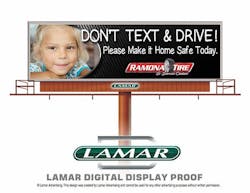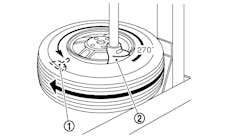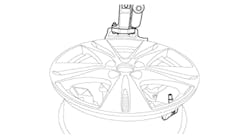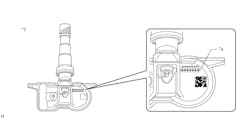Many of us make it a point to see our doctor for regular checkups. Doing so gives the physician the opportunity to assess the current condition of our health, and gives us a chance to ask questions about medical issues or concerns. A thorough exam can help to diagnose early symptoms and gives the doctor an opportunity to offer recommendations and advice for a healthier lifestyle.
This little metaphor on the importance of medical checkups can also apply to tire dealers and their business insurance. Taking care of customers is your number one priority — you listen to their needs, surround the details, and follow through with exceptional service. With all of the day-to-day tasks you encounter, it’s very easy to put business management issues on the back burner to deal with later.
As your business changes and grows, so do your business insurance needs. Just as you visit your medical provider for a physical, it is a good idea to consult your insurance advisor, at least annually, to review your insurance coverage in light of changes your business may have undergone. There may be a few of you reading this who think, “If it ain’t broke, don’t fix it.” However, from an insurance standpoint, we do not know if something is “broken” unless we take the proper time to review everything to uncover potential problems. An annual review, or “physical exam,” of your insurance coverages helps ensure that coverage purchased last year adequately protects you today.
Are your property limits accurate?
Let’s, for a moment, imagine your business property just got hit by a storm or fire. Not only did the walls collapse and roof fall in, it all fell on everything within those walls. The equipment, inventory, furniture, light fixtures, pictures of your kids — anything and everything — ruined.
Now imagine finding out from your insurance provider that, while the walls and roof were insured for full replacement value, not much else was. Failure to calculate replacement value for your business personal property (contents) is a costly mistake some business owners make when valuing their business. Are you prepared for the out-of-pocket costs of being under-insured?
Most insurance companies can provide assistance in properly valuing your building. However, determining the replacement cost of your contents is harder, and it requires your time and expertise.
Yes, it may take some time to do a walk-through to list floor-to-ceiling contents and determine replacement costs, but it is so worthwhile. It’s the best way to calculate accurate values so you’re adequately covered if you have a claim. The extra time spent now will be much appreciated in the unfortunate event of a loss.
Who owns your building?
It’s typical for many tire dealers to own their building personally and lease it back to the company. If your business is set up this way, you may have a gap in insurance coverage. This often-overlooked gap could result in significant costs for which you’d be personally responsible. For example:
John is the majority owner of ABC Tire Inc. He personally owns the building and leases it back to the business. The company has a basic insurance policy with no additional insured endorsements.
One day, a customer slipped and fell in the waiting area. The customer sued the business for medical expenses. The customer’s attorney decided to name all involved parties in the lawsuit: ABC Tire Inc., John as the building owner, and the janitorial service as well.
In this case, ABC Tire’s insurance policy would provide no defense costs for John or coverage for any settlements he personally owes.
This situation could have been prevented with a simple endorsement, at little or no charge. If ABC Tire’s policy had listed John as an additional insured — since he is the building owner — his personal expense could have been avoided.
All insurers are not created equal
So, what should you look for in an insurance company?
1. Investigate the financial strength of any company that insures your business and look for experience in your industry. Insurance industry analysts such as A.M. Best Co. Inc. can provide current ratings. Be sure the insurer you select has a rating of A or higher.
2. Make sure the company has a history of quality service and commitment to independent tire dealers. Oftentimes your trade association or buying group can be a good resource to help you determine which companies have demonstrated a long-term commitment to protecting their members.
3. Look for a company that can provide proper insurance programming. You have probably heard or read about a variety of high settlements that have occurred from any imaginable type of claim. Dealing with issues such as tire failure, cyber liability and employment-related practices can lead to potential surprises when a loss occurs. Don’t wait until you file a claim to find out if you’ve left your business vulnerable to these exposures.
A company that offers sound risk management programs, tailored to your industry and your business’s unique needs, can add an extra layer of protection for your business by helping you prevent losses before they can happen.
Companies specializing in business insurance, especially those that have coverages specifically for tire dealers, should be able to provide an annual check-up of your insurance and risk management programs.
Could a major claim put your company on life support?
Business insurance and choosing the right company for your needs is a more complex topic than what can be addressed in a single article. The previous examples and recommendations represent just a few of the many items that should be considered. Is it time for you to assess the performance of your current insurance provider?
Start with these few basic checkpoints:
- Are claims paid according to your expectations?
- Is the insurer financially sound and stable?
- Are you receiving the promised level of policy service and risk management support?
How you answer these questions can have a huge impact on your business, and may influence your decision to continue to do business with your current insurance company. You may find that an insurance physical is the best prescription for maintaining the health of your business. ■
Employment Practices Liability: Ramona Tire Focuses More on Avoiding Risks at its Stores
Chris Wyborny is vice president of Ramona Tire Inc., a 16-store chain based in Hemet, Calif. He is also a member of the Independent Tire Dealers Group LLC (ITDG), and has been a member of the Federated Insurance Advisory Council since 2011. Federated Mutual Insurance Co. is a preferred supplier to ITDG.
Modern Tire Dealer caught up with Wyborny and asked him what he looks for when reviewing his company’s insurance.
“The old saying, ‘If it’s predictable, it’s preventable,’ would probably be the first thing I would look for. Then making sure we have adequate coverage for the risks that we’re exposed to.
“There are so many new risks we face, particularly in California. We’re a litigious state, so we have to worry about not only the risk from our business operations, but also the risks if we’re not managing people right. It all comes down to risk management, making sure you’re adequately covered for a catastrophic loss.”
And by “catastrophic loss,” he is not referring to risks insurance typically cover, like lightning strikes or fires. He is talking about employment practices liability.
“I’m less concerned about those things than an employee who doesn’t torque the wheels correctly, or sends a customer out with old tires. Or if a tire fails and it comes back that we’re liable because we’re the expert and didn’t catch it. It’s all the other risks that we’re exposed to, just from our day-to-day operations, that scare me.”
In order to minimize risks, Ramona Tire has instituted a “no cell phone policy” in all vehicles. “We have stickers on the dash that warn if the drivers are caught on cell phones, they’re terminated,” he said. Employees also receive continuous training “on the risks they’re exposed to.”
The company also has a tire aging policy. “If it’s older than six years, we recommend taking it off,” he said. “That also applies to the spare tire.”
Wyborny said Ramona Tire has never had any major loss of any kind, “knock on wood.” ■
Located in Owatonna, Minn., Federated Mutual Insurance Co. is the recommended insurance carrier for the Tire Industry Association and 20 other state, regional and national tire dealer associations. It provides customized coverages and proven risk management strategies to more than 1,000 tire dealers across the country.
A solid company backed by a “Superior” rating from A.M. Best, Federated and its Client Service Standards help ensure the coverage you have is the coverage you need. If you would like to meet with a local Federated representative to review your current policy or discuss coverage options, call (800) 533-0472, or log on to federatedinsurance.com.
This article is for general information and risk prevention only and should not be considered legal or other expert advice.
This is not an offer of insurance. Coverage for claims will be governed by the facts of the claim and the terms of your policy. The recommendations herein may help reduce, but are not guaranteed to eliminate any or all risk of loss. Some of these services provided by third parties wholly independent of Federated. Federated provides its clients with access to these services with the understanding that neither Federated nor its employees provide legal or other expert advice. Qualified counsel should be sought with questions specific to your circumstances.



